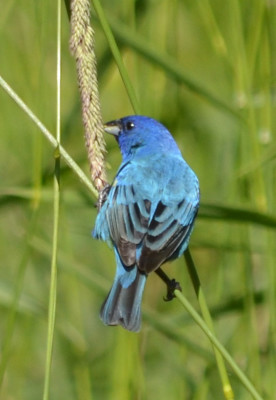Oh I love to see these sudden market drops! There really are no words for the feeling of joyful glee with which I rush to put in my orders. Buy! Buy! Buy! TD is on sale! BMO is reduced! BCE is at a discount! ENB is marked down! Time to dig the annual RRSP and TFSA money out from under the mattress, dust it off, and spend, spend, spend!
How to Deal with Markets that Just Keep Falling
The trick is once you buy DON’T look at the market for a few days. You should pick a price you think is reasonable to pay, buy if you get a chance at that price, and then get back to work making money in other ways that don’t involve the stock market.
The market may well continue to plummet AFTER you fork over your hard won cash. It’s kind of sad to realize you could have bought at an even lower price. So don’t look! Once you’ve invested, it’s done. Go away and let the market bubble along without you.
Best of all, get outside and do something real. Play softball. Take a bike ride. Wing a Frisbee for a dog. Swim across a bay. Not only will all those things remind you that money is abstract and you could actually live reasonably well with less of it, these activities will also improve your health. If you drop dead from inactivity caused by staring at your computer screen all day, every day, what good was saving and investing?
Even if Market Values Collapse Often Dividends Don’t
You’ll notice that the stocks I’m chanting about are all blue chip, large cap Canadian stocks. They’re companies I would feel comfortable holding for 3-10 years or longer providing they don’t get into any significant shenanigans during that term. I’m not buying them expecting to make a killing of a capital gain. On the contrary I’m buying them primarily as income stocks. They pay a steady comfortable dividend of between 4-6% at these discounted prices. That’s what I’m primarily after. If there is a long-term capital gain: bonus!
Don’t Invest Everything in Stocks
Everyone says this. I’m one of the few that does this. I don’t have all of our money in stocks. In fact, I don’t even have most of our money in stocks. We sleep well through all the market gyrations because we have investments that are not in the market at all.
I recommend the same.
Have a sturdy solid base of money that is not in the market. Yes, it is not earning much interest. Yes, it may be losing value against inflation. Tough, isn’t it? I figure I can earn enough off the portion that is in the market to cover inflation. If I’m wrong, I’ll just have to cry myself to sleep as I live off my 6-figure cash assets. Something tells me I’ll survive. I actually like beans.
Investing Can Be Fun!
Take some joy in your investments. Everyone seems so depressed all the time. Why? It’s only money! Ask anyone in a palliative care facility if they wish they had agonized more over every financial decision. I guarantee they will look at you blankly. Make the best investment decision you can for today, then get out there and Live! Love! Prosper! Those Vulcans know a thing or two.
Related Reading
Join In
Are you enjoying the current market swoop? Have you taken a refreshing plunge into the market and risen up from the swirling wild waters with a pearl? Please share your experiences with a comment.

